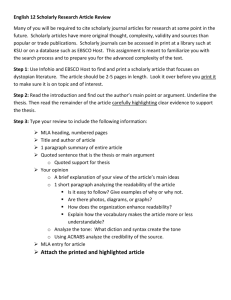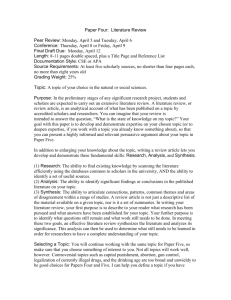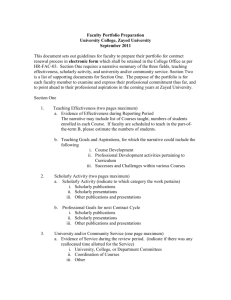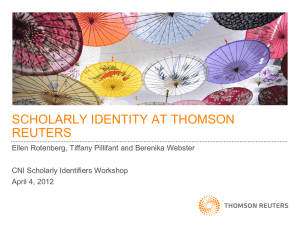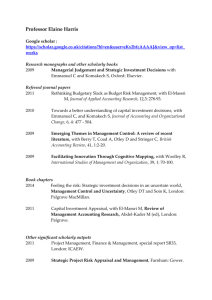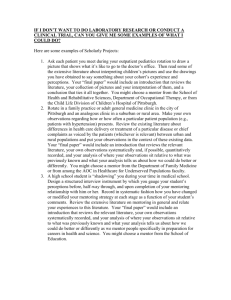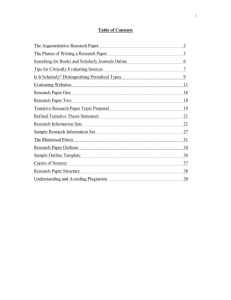ADULT LEARNING STRAND Module descriptor All Hallows College
advertisement
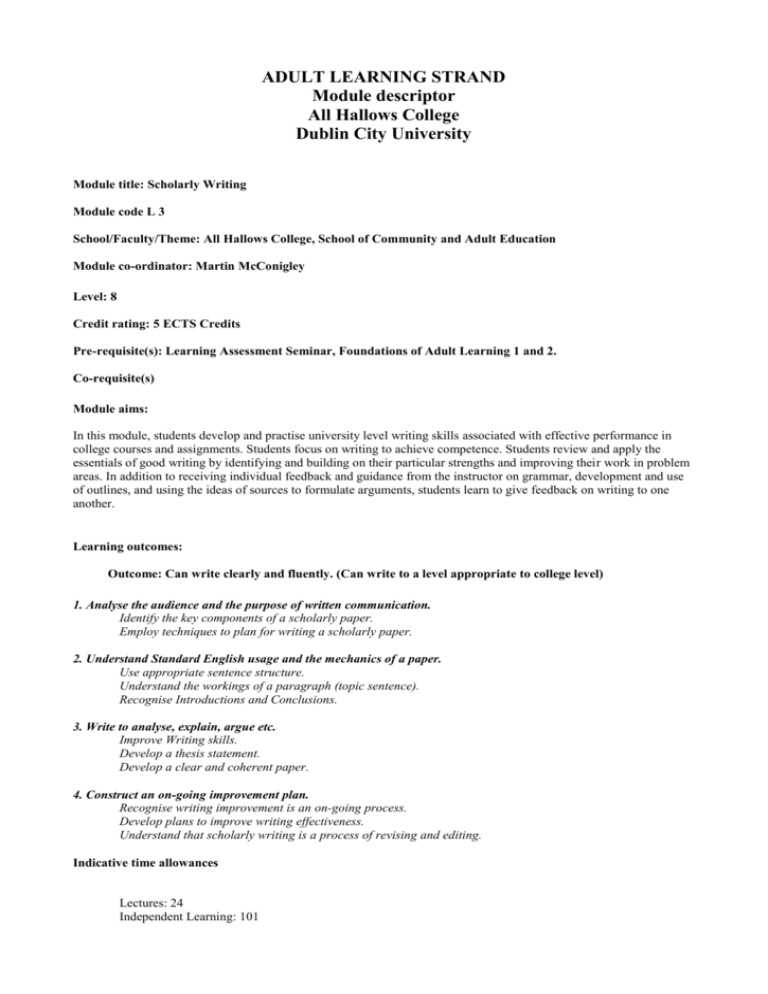
ADULT LEARNING STRAND Module descriptor All Hallows College Dublin City University Module title: Scholarly Writing Module code L 3 School/Faculty/Theme: All Hallows College, School of Community and Adult Education Module co-ordinator: Martin McConigley Level: 8 Credit rating: 5 ECTS Credits Pre-requisite(s): Learning Assessment Seminar, Foundations of Adult Learning 1 and 2. Co-requisite(s) Module aims: In this module, students develop and practise university level writing skills associated with effective performance in college courses and assignments. Students focus on writing to achieve competence. Students review and apply the essentials of good writing by identifying and building on their particular strengths and improving their work in problem areas. In addition to receiving individual feedback and guidance from the instructor on grammar, development and use of outlines, and using the ideas of sources to formulate arguments, students learn to give feedback on writing to one another. Learning outcomes: Outcome: Can write clearly and fluently. (Can write to a level appropriate to college level) 1. Analyse the audience and the purpose of written communication. Identify the key components of a scholarly paper. Employ techniques to plan for writing a scholarly paper. 2. Understand Standard English usage and the mechanics of a paper. Use appropriate sentence structure. Understand the workings of a paragraph (topic sentence). Recognise Introductions and Conclusions. 3. Write to analyse, explain, argue etc. Improve Writing skills. Develop a thesis statement. Develop a clear and coherent paper. 4. Construct an on-going improvement plan. Recognise writing improvement is an on-going process. Develop plans to improve writing effectiveness. Understand that scholarly writing is a process of revising and editing. Indicative time allowances Lectures: 24 Independent Learning: 101 TOTAL 125 hours Indicative syllabus This module consists of eight sections. Each section is designed to provide specific information about scholarly writing techniques. Indicative Syllabus: What is scholarly writing? Sentence structure Planning and Structuring A Thesis Statement Introductions Paragraphs Conclusions Referencing (Bibliographies) Assessment To achieve this outcome students are expected to create a portfolio illustrating key skills of scholarly writing (4 short assignments) and will write a full length paper (1000-1500). At the end of module each student will meet the tutor to discuss portfolio and work on an on-going improvement plan. Portfolio Contents Subjective & Objective Writing - Choose an article and write a personal response to it (100w); focusing on the same article, write a short summary passage (100w) using objective writing. Idea Generation: Create a Cluster Diagram – or other generation method (This may be used for your final assignment). Annotation Skills: Find an article, column, or chapter and annotate at least one page. Thesis Writing: Create 3-6 Thesis Statements (One of these may be used in your final paper). Essay Paper: Demonstrate key writing skills – Introduction, paragraphs, conclusion, referencing. Indicative reading list Core Creme, P., & Lea, M. R. (2008). Writing at university : a guide for students (3rd ed. ed.). Maidenhead: McGraw-Hill Open University Press. Godfrey, J. (2011). Writing for university. Basinstoke: Palgrave. Rose, J. (2007). The mature student's guide to writing (2nd ed. ed.). Basingstoke: Palgrave Macmillan. Smith, P. (2011). How to write an assignment : proven techniques from a chief examiner that really get results (8th ed. ed.). Oxford: How To Books. Appropriate Academic material will be provided by the instructor. Reading journal papers will make up the bulk of reading throughout the module. It is also recommended that students acquire a college level dictionary and a thesaurus. Date of last revision April 2013 Programme or list of programmes on which this module will be delivered Adult Learning BA in – All Hallows College Programme reference number
